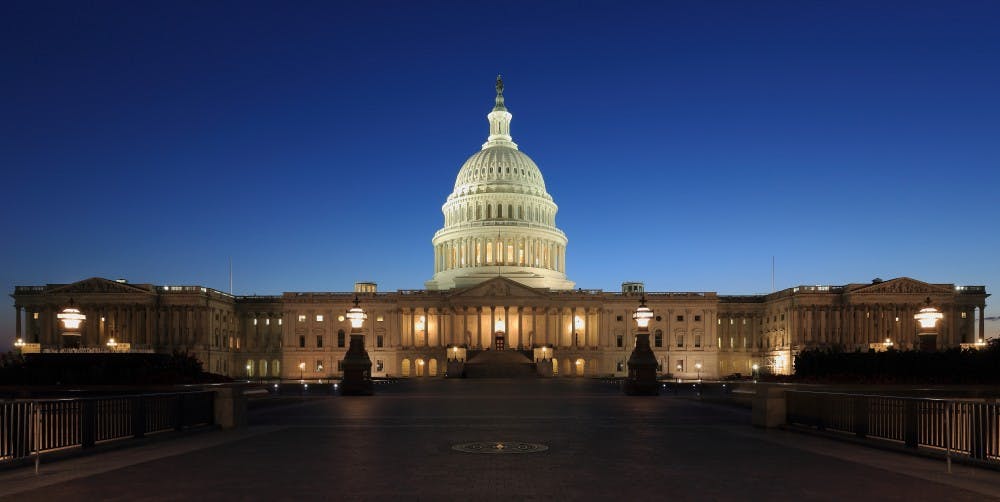It was not until December of 2018 that the Senate voted to make lynching a federal crime. Between 1882 and 1986, Congress attempted 200 times on this legislation to no avail. Why did it take so long? The filibuster.
The Senate generously likes to characterize itself as the “the greatest deliberative body in the world.” And perhaps that’s the chief issue: it’s not a debate society for millionaire 60-year-olds; it’s a legislative body with over 320 million constituents. So long as 41 senators want debate to continue, the vote on a bill can be delayed indefinitely, effectively preventing its passage. The current rules of the Senate enable tyranny of the minority.
This was not what the Framers intended. From its establishment in 1789 until 1806, the Senate required a simple majority to end debate and proceed to a vote. In Federalist 22, Alexander Hamilton explained that an over-powered minority would upset the “the regular deliberations and decisions of a respectable majority.” Hamilton was killed in 1804, and never lived to see the filibuster. It was his murderer who birthed it.
Vice President Aaron Burr — a member of University’s Class of 1772 — convinced the body as President of the Senate in 1805 to remove the motion of “moving the previous question.” Without this motion, a loophole was formed: debate could hypothetically extend forever and prevent the Senate from conducting any other business. Today, this is known as the filibuster — a Dutch word meaning “pirate.”
Historically, the filibuster was abused by white supremacists in the Senate to slow progress towards racial equality and narrow the scope of much-needed legislation (see: Fair Employment Practice Committee and its anti-lynching laws). The most famous of these was Strom Thurmond’s 24-hour-and-eighteen-minute address against the Civil Rights Act of 1957. Because the filibuster is a tool for prolonging debate and thereby preserves the status quo, it has always been a more effective tool for reactionary, rather than progressive politics.
From 1837 — when the first filibuster occurred — until the early 20th century, there was no mechanism for the Senate to end debate and proceed to a vote. The mere threat of a filibuster could grind the Senate to a halt, for no other matters could be considered until debate had ceased on the motion at hand (this is no longer the case, however, because there is now a two-track system). In 1917, Senate Rule XXII was adopted, at the urging of President Woodrow Wilson, who graduated from the University in 1879 — this allowed for cloture (cessation of debate) to be invoked if two-thirds of the body consented (today, it is only three-fifths).
In today’s hyper-partisan environment, the high threshold for cloture — 60 votes —is one of the central obstacles to the passage of major legislation. At only one time in the last 40 years has one party ever exercised a majority large enough to force cloture: the Democrats of the 111th Congress. Even then, they only had a filibuster-proof majority for fewer than seven months.
While budget reconciliation allows for some legislation to be passed with a simple majority in the Senate, its scope is limited to fiscal matters, which is why Republicans passed their 2017 tax cuts without invoking cloture. But action on climate change, voting rights, gun control, health care, immigration, and criminal justice all require major legislation that is not entirely fiscal in nature.

As 2020 Democratic primary candidates outline their plans to tackle these issues, it is important to keep in mind that no ambitious course of action can be adopted — even with Democratic majorities in the House and Senate — if the filibuster remains. It must be abolished. The so called “nuclear option” must be invoked.
Climate change, in particular, demands a swift and thorough response from the federal government. It will have an outsized impact on our generation and the ones that follow. Policies that combat the rise in global temperatures, like the Green New Deal, are widely popular with younger people because we recognize the pressing need for them. However, given the partisan composition of the Senate, any piece of legislation that would change the United States’ approach to carbon consumption will not earn the necessary 60 votes. The Green New Deal “will never happen while the filibuster lives,” says Ezra Levin, the executive director of the Indivisible Project.
Popular, and much needed, policies promoted by 2020 presidential hopefuls like Medicare for All, the Green New Deal, and universal child care will be dead on arrival in the Senate, so long as the filibuster is intact. It is disappointing that Senators Cory Booker, Kirsten Gillibrand, and Bernie Sanders, all 2020 hopefuls, who have endorsed both Medicare for All and the Green New Deal, support keeping the filibuster. Their paradoxical position does not stand up to reason: either they are delusional in thinking these policies will garner significant Republican support, or they are not invested in their passage.
Those calling for the filibuster to be reconsidered (a group that ranges from President Trump to Senator Warren) are correct in their assessment that it is an undemocratic tradition whose time has passed. The Senate should not be held hostage by its minority. In Federalist 58, President James Madison, who graduated from the University in 1771, wrote against an over-empowered minority: “in all cases where justice or the general good might require new laws to be passed, or active measures to be pursued, the fundamental principle of free government would be reversed.” We should heed his call and nuke the filibuster.

Zachariah Sippy is a first-year from Lexington, Ky. He can be reached at zsippy@princeton.edu.








